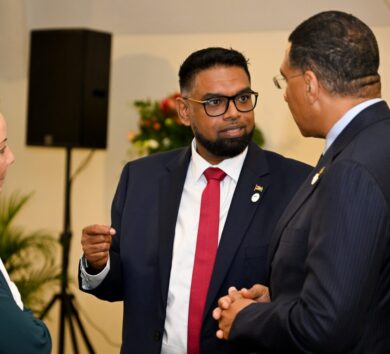

Durrant Pate/Contributor
The Caribbean Tourism Organisation (CTO) has signed a landmark Memorandum of Understanding (MOU) with Conservation International to develop tourism models that help to restore coral reefs, replant forests, create jobs and support local communities in the region.
The agreement with support from member governments such as Jamaica and the Dominican Republic includes joint targets in capacity building, investment in conservation-linked tourism, and community-centred modalities of growth. CTO Secretary-General Dona Regis-Prosper called the agreement a “meaningful step forward in the development of a climate-smart, inclusive industry”.
Conservation International’s Kelvin Alie hailed the deal, highlighting that nature-positive tourism can act as a driver for regional blue economies and coastal protection. Tourist boards from the Dominican Republic, Jamaica, Bahamas, and Puerto Rico are already collaborating with the CTO to showcase nature-positive packages in global roadshows and connecting them to UN-approved frameworks for sustainable travel.
Details of the MOU
Under the MOU, CTO and Conservation International will collaborate with regional marine labs, including those in Puerto Rico and the Cayman Islands, to restore damaged coral nurseries, cut down on reef-damaging litter, and teach tourism guides to advise visitors on how to minimise their environmental impact. These activities will be bolstered by training modules designed for dive masters, yacht operators and marine tour guides, with all participants being able to apply for certification in reef-safe tourism.
Islands with cruise ports and diving infrastructure could benefit as tourists look for greener, experiential activities. The deal promotes a raft of workshops, professional exchanges and vocational apprenticeships in sustainable practices, ranging from sustainable snorkelling certification to beach cleanup stewardship.
Antigua, Aruba, Curaçao, and Saint Lucia will also host annual trainings, which will be funded with money from the CTO. This is a follow-up to the INSPIRE programmes initiated by CTO, where young people and women in the business are equipped with ESG, sport eco-guiding and nature-based service skills.
The Barbados and Jamaica governments have committed to incorporating such training in the tourism industry’s continuing education.
Investment and Funding Mechanisms
By tapping into Conservation International’s blue economy grant programs, islands like the Dominican Republic and Trinidad can divert private sector financing into regenerative tourist projects. Models of public–private partnership—hotels paying for onsite solar panels, mangrove carbon credits, or reef restoration—are likely to proliferate as the agreement matures.
Environmental and tourism ministries are already creating green tourism bonds and community microloan investment profiles in Saint Lucia and the Bahamas to increase lodge upgrading, reforestation programs, and artisanal tourism. Countries in the Caribbean are particularly susceptible to the impacts of climate change.
By virtue of this, the MOU accounts for this by financing nature-based projects that protect shorelines like the mangrove restoration efforts underway in Trinidad and Tobago and artificial reef barriers being constructed in Bermuda. Governments from Jamaica to Haiti have welcomed outside money and research capacity to help design tourism infrastructure built to weather storms.
Destinations such as Saint Kitts and Nevis are integrating resilience planning and tourism development in the hope of making the tourism offer less risky while also more value-enhancing to visitors. The effort is consistent with the Caribbean Disaster Emergency Management Agency (CDEMA) led climate adaptation at the national level.







Comments